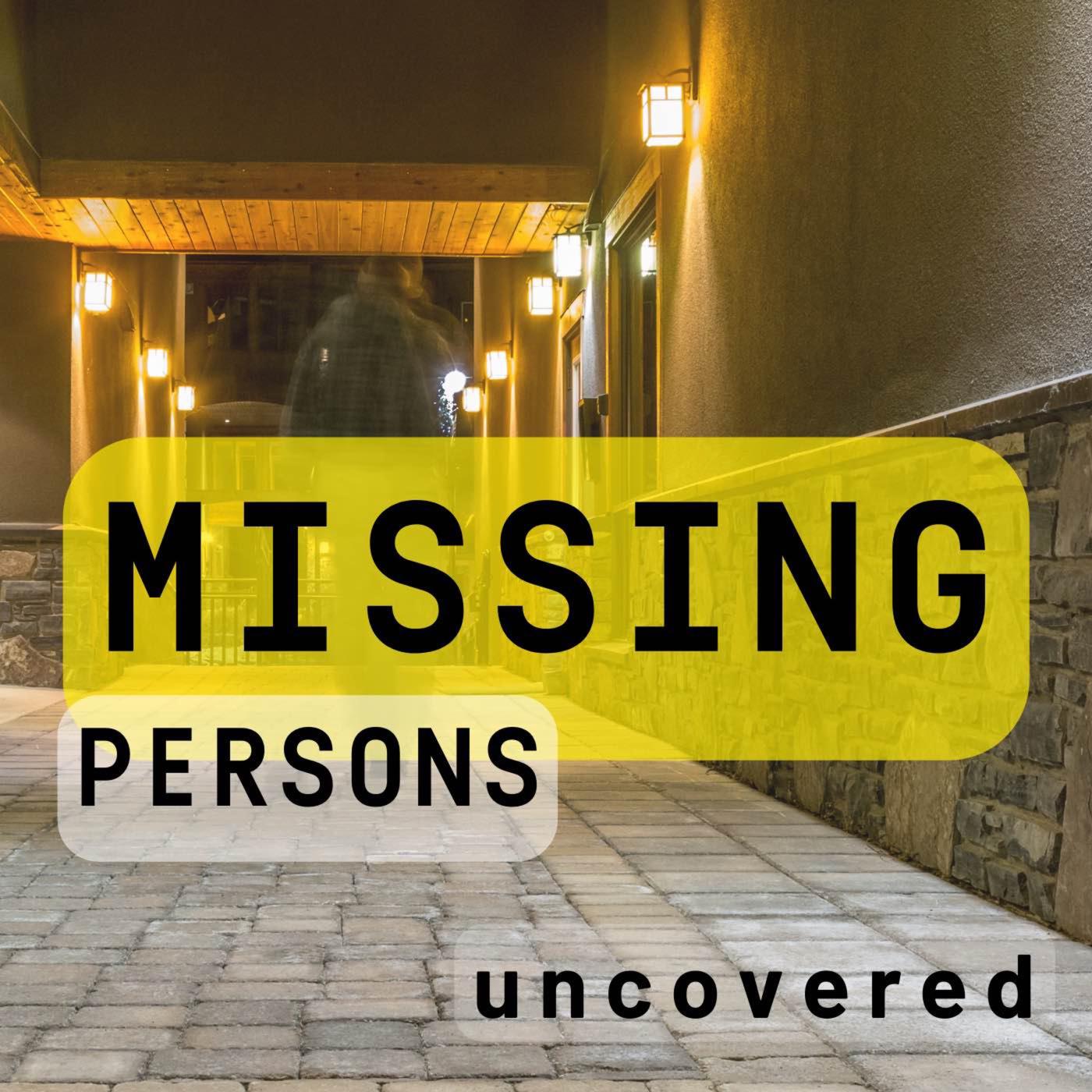

<strong>In the age of satellite imagery, CCTV monitoring and 24- hour surveillance, why are so many people going missing? And where have they gone?</strong></p><strong>&nbsp;</strong></p><a href="http://missingpersonsuncovered.com/" rel="noopener noreferrer" target="_blank"><strong>Missing Persons Uncovered</strong></a>&nbsp;gets beneath the surface of an emergency nations are facing across the world. Every year 155,000 people go missing in theUK alone. What does it mean to go missing? Why do some people make the choice to disappear? And how can we protect our vulnerable loved ones better?</p><br>Caroline Humer and Karen Shalev Greene set out to hear first-hand experiences of those who have experienced missing persons cases, seeking the people behind the statistics. Listen in on revealing conversations with professionals and practitioners who are working to challenge myths and raise awareness around this much misunderstood social and personal issue.</p><br>Combining Caroline’s 20 years of experience working as a child protection expert with Karen’s 12-year academic mission to understand the world of missing persons and their protection, the team invites you to join them in sharing knowledge on how we can protect society’s most vulnerable people.&nbsp;</p><br>Find out more about all of our guests and the Missing Persons Uncovered project on the website&nbsp;<a href="http://missingpersonsuncovered.com/" rel="noopener noreferrer" target="_blank">missingpersonsuncovered.com</a></p><br><em>Episodes have been supported&nbsp;&nbsp;by the University of Portsmouth and First Factory.</em></p><em>&nbsp;</em></p><em>The University of Portsmouth supports and carries out research to change our world for the better. You can find out more about projects like this at port.ac.uk/research.</em></p><em>&nbsp;</em></p><em>First Factory is a Software Development Company built on honest, integrity and quality. They have committed to building technology solutions to help in missing persons investigations.</em></p><br /><hr><p style='color:grey; font-size:0.75em;'> Hosted on Acast. See <a style='color:grey;' target='_blank' rel='noopener noreferrer' href='https://acast.com/privacy'>acast.com/privacy</a> for more information.</p>
Hosted on Acast. See acast.com/privacy for more information.
Hosted on Acast. See acast.com/privacy for more information.
Hosted on Acast. See acast.com/privacy for more information.
In recent years, Europe has witnessed a surge in human mobility, which regrettably includes children. In 2022, the influx of migrant children into Europe rose by almost 50% compared to the previous year. Tragically, a significant portion of these children subsequently go missing. NGOs such as Child Focus and Missing Children Europe are dedicated to aiding in the search for these missing children.
According to Lost in Europe, a cross-border journalism project investigating the disappearance of child migrants in Europe more than 51,000 unaccompanied minors went missing in Europe between 2021-2023.
Hosted on Acast. See acast.com/privacy for more information.
Hosted on Acast. See acast.com/privacy for more information.
Hosted on Acast. See acast.com/privacy for more information.
In this episode, Karen talks to Pascale Waschnig about different forms of trauma encountered during a missing episode and from services that are in contact with relatives of missing people and how art can assist in expressing the trauma a person has experienced.
Hosted on Acast. See acast.com/privacy for more information.
Hosted on Acast. See acast.com/privacy for more information.
Hosted on Acast. See acast.com/privacy for more information.
Hosted on Acast. See acast.com/privacy for more information.
Amanda is a wife. A mother. A blogger. A Christian.
A charming, beautiful, bubbly, young woman who lives life to the fullest.
But Amanda is dying, with a secret she doesn’t want anyone to know.
She starts a blog detailing her cancer journey, and becomes an inspiration, touching and
captivating her local community as well as followers all over the world.
Until one day investigative producer Nancy gets an anonymous tip telling her to look at Amanda’s
blog, setting Nancy on an unimaginable road to uncover Amanda’s secret.
Award winning journalist Charlie Webster explores this unbelievable and bizarre, but
all-too-real tale, of a woman from San Jose, California whose secret ripped a family apart and
left a community in shock.
Scamanda is the true story of a woman whose own words held the key to her secret.
New episodes every Monday.
Follow Scamanda on Apple Podcasts, Spotify, or wherever you listen.
Amanda’s blog posts are read by actor Kendall Horn.